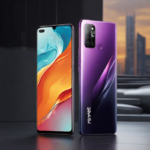Top 5 April Fool Pranks That Went Viral on the Internet
Google’s “Nose” Beta (2013):
In 2013, Google introduced “Google Nose Beta,” a fictitious product claiming to allow users to search the internet using their sense of smell. The prank included a webpage featuring a nasal-themed search bar and humorous descriptions of scents. Google even provided a “Google Aromabase” with scent categories like “Fruit,” “Flower,” and “Savory.” The prank garnered widespread attention and sparked amusement across social media platforms. While obviously absurd, the attention to detail and convincing presentation made it a memorable April Fool’s joke.

Netflix’s “Binge Responsibly” (2017):
In 2017, Netflix launched a clever April Fool’s prank aimed at its binge-watching audience. The streaming service released a parody PSA titled “Netflix Live,” featuring actor Will Arnett providing humorous commentary on mundane activities like pencil sharpening and folding laundry. The mock livestream was presented as Netflix’s attempt to encourage viewers to “binge responsibly” by taking breaks from their favorite shows. The prank resonated with audiences, showcasing Netflix’s understanding of its users’ behavior and sense of humor.
Amazon’s “Petlexa” (2017):
In 2017, Amazon announced “Petlexa,” a fictional feature for its Alexa virtual assistant that purportedly allowed pets to communicate with Alexa-enabled devices. The prank included a humorous video demonstrating dogs and cats issuing commands to Alexa, such as ordering treats or requesting “cat music.” While obviously absurd, the cleverly produced video and accompanying press release garnered widespread attention and amused pet owners worldwide. Amazon’s “Petlexa” prank showcased the company’s playful side while highlighting the growing integration of voice assistants into daily life.
Google’s “Pac-Man” Google Maps (2015):
In 2015, Google transformed Google Maps into a playable version of the classic arcade game Pac-Man for April Fool’s Day. Users could navigate the iconic yellow character through city streets around the world, avoiding ghosts and collecting dots. The prank delighted users, offering a nostalgic twist on the familiar mapping service. Google’s “Pac-Man” Google Maps prank demonstrated the company’s creativity and ability to seamlessly integrate entertainment into its products.

Tesla’s “Teslaquila” (2018):
In 2018, Tesla CEO Elon Musk teased a new product called “Teslaquila” as an April Fool’s joke on Twitter. Musk posted a photo of a Tesla-branded liquor bottle and jokingly referred to it as “Teslaquila” in a tweet. While initially intended as a lighthearted prank, the concept gained traction online, with many users expressing interest in the fictional product. Tesla later filed a trademark application for “Teslaquila,” further fueling speculation about its potential release. Although ultimately a joke, “Teslaquila” showcased Musk’s ability to generate buzz and engage with his audience on social media.
These April Fool’s pranks captivated audiences with their creativity, humor, and often unexpected twists, demonstrating the power of playful marketing and viral content on the internet. While they may have been short-lived jokes, their impact resonated long after April 1st, leaving a lasting impression on audiences worldwide.






